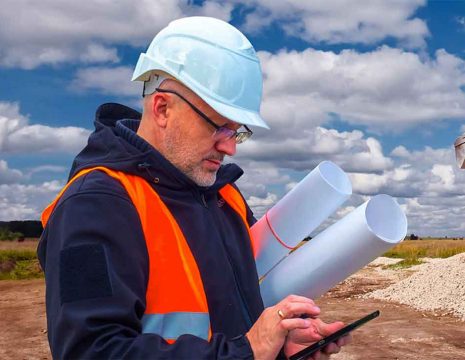Reliable, instant communication plays a critical role in the security sector. It is crucial to ensuring a timely response to emergencies, to sharing information and for the coordination and collaboration of staff across different teams. It helps to provide real time updates and enhances decision making, ultimately enhancing the effectiveness of security operations.
This blog looks at how communication in the security sector is evolving. At last, security providers for public spaces and major events can bid farewell to legacy two-way radio systems and embrace the future of critical communications.
Enhancing security communication: overcoming the challenges.
In the security sector, reliable and instant communication can present challenges. Security guards are often dispersed across various locations and patrol routes, leading to sporadic and ineffective communication. Additionally, the limited ability to communicate within specific working or site groups, coupled with potentially distracting radio chatter for non-group members, poses challenges. Immediate incident reporting is crucial for alerting nearby team members while maintaining continuous communication. Furthermore, the ability to track guards’ locations throughout their shifts is imperative for enhanced security measures.
Exposing the limitations of two-way radios for the security sector.
The growth in mobile network coverage and the expansion and improvement of 4G/LTE and later 5G networks has improved the performance of push-to-talk over cellular services and exposed the limitations of legacy radios. Compared to two-way radios, push-to-talk over cellular (also known as PTToc, PTT and PoC), provides a simpler, more powerful and cost-effective means for security companies to instantly communicate with employees. Reliable, robust coverage is crucial for security firm operating in diverse environments, including remote areas or buildings with poor reception.
Unlike traditional two-way radios, PTT uses cellular networks, eliminating the limitations of range and meaning users can communicate with each other wherever they are in the world. The growth in satellite communications and private networks is bringing connectivity to the hardest-to-reach locations, meaning security organisations no longer need to rely on expensive, out-dated legacy systems for their critical communications.
Push-to-talk, push-to-message, push-to-locate, push-to-record and more.
As well as one-to-one communication, PTT also facilitates group communication, enabling security teams to create channels or groups where multiple team members can communicate simultaneously. This is vital in coordinating prompt response, sharing critical information, and ensuring everyone involved is on the same page.
What’s more, the PTT solution has evolved beyond voice-only communication and now includes the ability to share multimedia messages, videos, and files. The technology also features, advanced capabilities for increased productivity and safety, including location tracking, man down functionality and the ability to send SOS alerts in the event of an emergency. All these features help keep security personnel safer in the field.
Improving worker safety and workforce management.
A range of add-on features are available to the PTT solution, including a lone worker solution, a browser-based dispatch console for commanding and controlling security operatives in the field and a workforce management solution.
The lone worker feature is ideal for remote workers and helps to keep security operatives safer. The console allows live location monitoring, historic location tracking, and reporting via an interactive map. Geo-fences can be created, and notifications received when operatives enter or leave an area. Users can trigger emergency assistance with an SOS button and instantly alert the controller in case of danger.
Storm’s integrated workforce management solution aids security firms in more effective workforce management, including attendance and time monitoring, forms and checklists, reporting, scheduling, and task creation.
PTT deployed by security firms across the world.
Our technology is already deployed by security firms in the UK and worldwide. In Eastern Europe, Civitas Group, one of Romania’s largest security firms, utilises Storm’s push-to-talk over cellular and workforce management technologies to protect critical infrastructure on behalf of clients. Leeds Bradford Airport recently transitioned from a legacy radio system to Storm’s push-to-talk over cellular (PTToC) for critical communications, making it one of the first airports in Europe to do so.
In summary, effective security hinges on seamless, reliable communication to ensure the safety of both security personnel and the people and environments they protect. Legacy radio systems are outdated, and security providers can now leverage powerful new technologies for critical communications, enhancing safety and productivity. Storm’s world-leading push-to-talk platform enables security companies to do business in new ways and delivers a wealth of information at the push of a button.
If you’d like to know more about Storm’s push-to-talk (PTT) solution, please get in touch.



